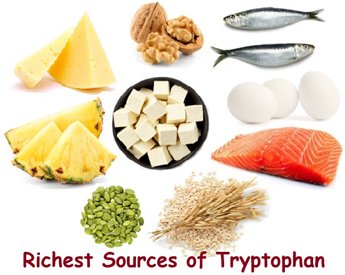What should we eat to get a good night sleep?
A good night’s sleep is one where you fall asleep easily, stay asleep without frequent awakenings, and wake up feeling refreshed and energized. For most adults, this means getting 7–9 hours of quality, uninterrupted rest. It allows the body and mind to recover, repair, and prepare for the next day.

Neurotransmitters like serotonin, GABA, and melatonin play key roles in promoting good sleep.
- Serotonin helps regulate mood and the sleep-wake cycle,
- GABA (Gamma-amino butyric acid) calms brain activity to prepare for rest, and promote relaxation before bedtime, and
- Melatonin signals the body that it’s time to sleep. Together, they help you fall asleep faster and enjoy deeper, more restorative rest.
Getting a good night’s sleep often depends on more than just having a comfortable bed or following a bedtime routine — it can also be influenced by what you eat.
Serotonin booster foods-
Certain foods and lifestyle habits can help boost serotonin production naturally. Eating more tryptophan-containing foods is one of the simplest ways to do this, as tryptophan is the amino acid your body uses to make serotonin.
Some of the richest sources of tryptophan which can be easily added to daily meals:
- salmon and turkey are excellent protein-packed options, while eggs and cheese provide both tryptophan and other essential nutrients like vitamin B12.
- Plant-based choices such as tofu, nuts, oats, and seeds are great for vegetarians and vegans, offering healthy fats, fiber, and protein.
- Even sweet options like pineapples can give a refreshing boost while supporting serotonin production for better mood and sleep.
GABA-rich foods-
Melatonin-
- Melatonin-rich foods like tart cherries, eggs, grapes, walnuts, and tomatoes. Consuming these foods before bed may modestly increase circulating melatonin levels, potentially reducing the time it takes to fall asleep, or improving sleep efficiency.
By combining a nutrient-rich diet with healthy lifestyle habits, you can naturally improve key neuro-chemicals levels and enjoy deeper, more restorative sleep.
Beyond food, getting enough sunlight during the day can also enhance serotonin production. Regular exercise, stress reduction techniques, and certain supplements such as magnesium may further support healthy neuro-chemicals levels.
Read further on:
≺≺ What role do probiotics play in the diet?
≺≺ How can I reduce the risk of cancer-causing chemicals when cooking or grilling meat?
≺≺ How toxic are the nitrites used in curing processed meats?
≺≺ What are the worst meats for accumulating cancer-causing chemicals during cooking?
≺≺ How are artificial sweeteners made?
≺≺ Can Physical Activity Help Improve My Arthritis?
≺≺ How common is thumb pain from too much texting?
≺≺ What health problems are linked to consuming corn syrup?
≺≺ What happens to my blood vessels when I gain weight?
≺≺ What are the four enemies of blood sugar?
≺≺ What type of exercise is best for lowering my blood sugar?
≺≺ What impact can sitting for long periods have on my health?
≺≺ Does my social circle impact my weight?
≺≺ How toxic are the nitrites used in curing processed meats?
≺≺ How can I reduce the risk of cancer-causing chemicals when cooking or grilling meat?
≺≺ What foods can lower prostate cancer risk?
≻≻ Watch this page for more such informative articles on Health, Nutrition, and Wellness.
≻≻-Back to Home page.
Further reading (External Links opens in new window):
≺≺- Harvard Health Publishing- Could what we eat improve our sleep?.
≺≺- Cleveland Clinic- Foods to increase serotonin levels.

